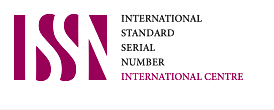HARDINESS AS A MEDIATOR RELATIONSHIP BETWEEN SOCIAL SUPPORT AND WORK ENGAGEMENT OF EMPLOYEES DURING THE TRANSITION OF A PANDEMIC TO A COVID-19 ENDEMIC
Abstract
Termination of employment or layoffs during the covid-19 pandemic is a bad condition because it is dismissed and also creates new pressure for employees because they have to be in the company by accepting excessive work which causes a decrease in work engagement for workers. This study aims to determine whether hardiness has a role as a mediator between social support relationships and work engagement in employees during the transition from the pandemic to the Covid-19 endemic. This study uses a quantitative method through the mediation regression process and accidental sampling technique, as many as 717 employees who worked in Jakarta during the transition from the pandemic to the Covid-19 endemic response to a questionnaire from the Utrecht Work Engagement Scale (UWES) measuring instrument developed by Schaufeli & Bakker, Social Provisions Scale developed by Russell and Cutrona, and Hardiness Resilience Gange (HRG) developed by Kobasa. The analysis of the mediation regression process in this study used the PROCESS V3.5 Procedure for SPSS by Andrew F. Hayes. The results show that hardiness acts as a mediator of the relationship between social support and work engagement, this indicates that social support and work engagement will increase with the role of hardiness. This research is expected to provide a reference to workers and companies regarding the importance of understanding the values of hardiness, social support and work engagement so that they can understand the individual's ability to adapt to career changes during the pandemic in order to increase employee work engagement with the company.
Full Text:
PDFReferences
Bakker, A. B., Hakanen, J. J., Demerouti, E., & Xanthopoulou, D. (2007). Job resources boost work engagement, particularly when job demands are high. Journal of educational psychology, 99(2), 274.
Priyono, M. S. D. M. (2010). Jakarta.
Brummelhuis, L. L., & Bakker, A. B. (2012). Staying engaged during the week: the effect of off-job activities on next day work engagement. Journal of occupational health psychology, 17(4), 445. ((Bakker, 2011; Brummelhuis & Bakker, 2012). )
Johnson, D.W, Johnson. F. 1991. Joining Together. Group Theory and Group Skill. Fourth Edition. Englewood Cliffts. Prentice Hall Inc
Puspita, M. D. (2013). Hubungan antara dukungan sosial dan makna kerja sebagai panggilan (calling) dengan keterikatan kerja. Calyptra, 1(1), 1-17. ISO 690
Bakker, A. B. (2011). An evidence-based model of work engagement. Current directions in psychological science, 20(4), 265-269.
Kobasa, S. C. (1979). Stressful life events, personality, and health: an inquiry into hardiness. Journal of personality and social psychology, 37(1), 1.
Arifin, C (2020). Pintar Jaga Cash Flow, Kunci Perusahaan Bisa Bertahan di Masa Pandemic Covid-19. Tribunnews.com. Diakses dari https://www.tribunnews.com/bisnis/2020/06/06/pintar-pintarlah-jaga-cash-flow-kunci-perusahaan-bisa-bertahan-di-masa-pandemi-covid-19
Al Faqir, A (2020). Sekretaris Menteri Koordinator Bidang Perekonomian, Susiwijono menyebut saat ini ada 56,2 juta penduduk Indonesia yang tidak bekerja menganggur karena pandemi Covid-19. Liputan6.com. Diakses dari https://www.liputan6.com/bisnis/read/4425111/gegara-pandemi-covid-19-562-juta-penduduk-indonesia-menganggur
Refbacks
- There are currently no refbacks.
Copyright (c) 2022 IPRC
Tim Editorial Office
Office: Faculty of Psychology, University of Mercu Buana
(Campus-A Meruya) Building D 202, 2nd Floor Jalan Meruya Selatan No. 1, Kembangan, West Jakarta
Phone: +62 858 857 92245 (WhatsApp text only)
Email: [email protected]
Website: https://iprc.mercubuana.ac.id/









